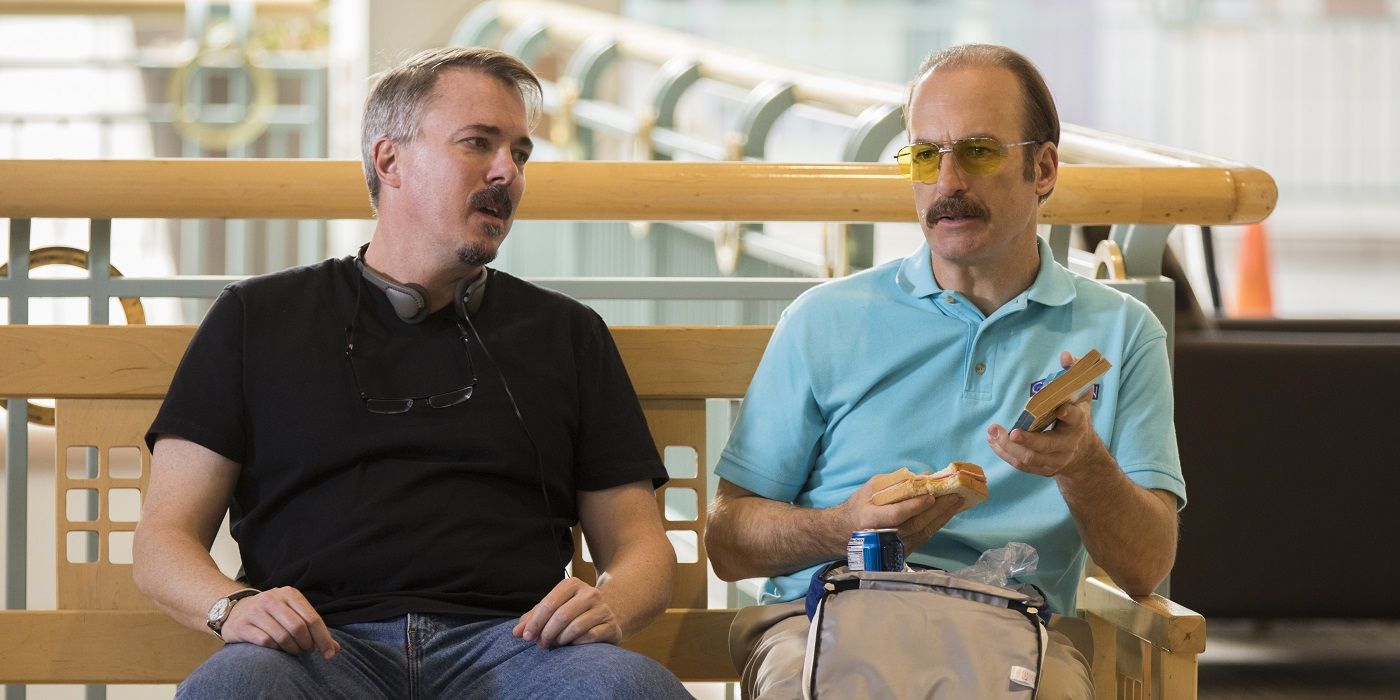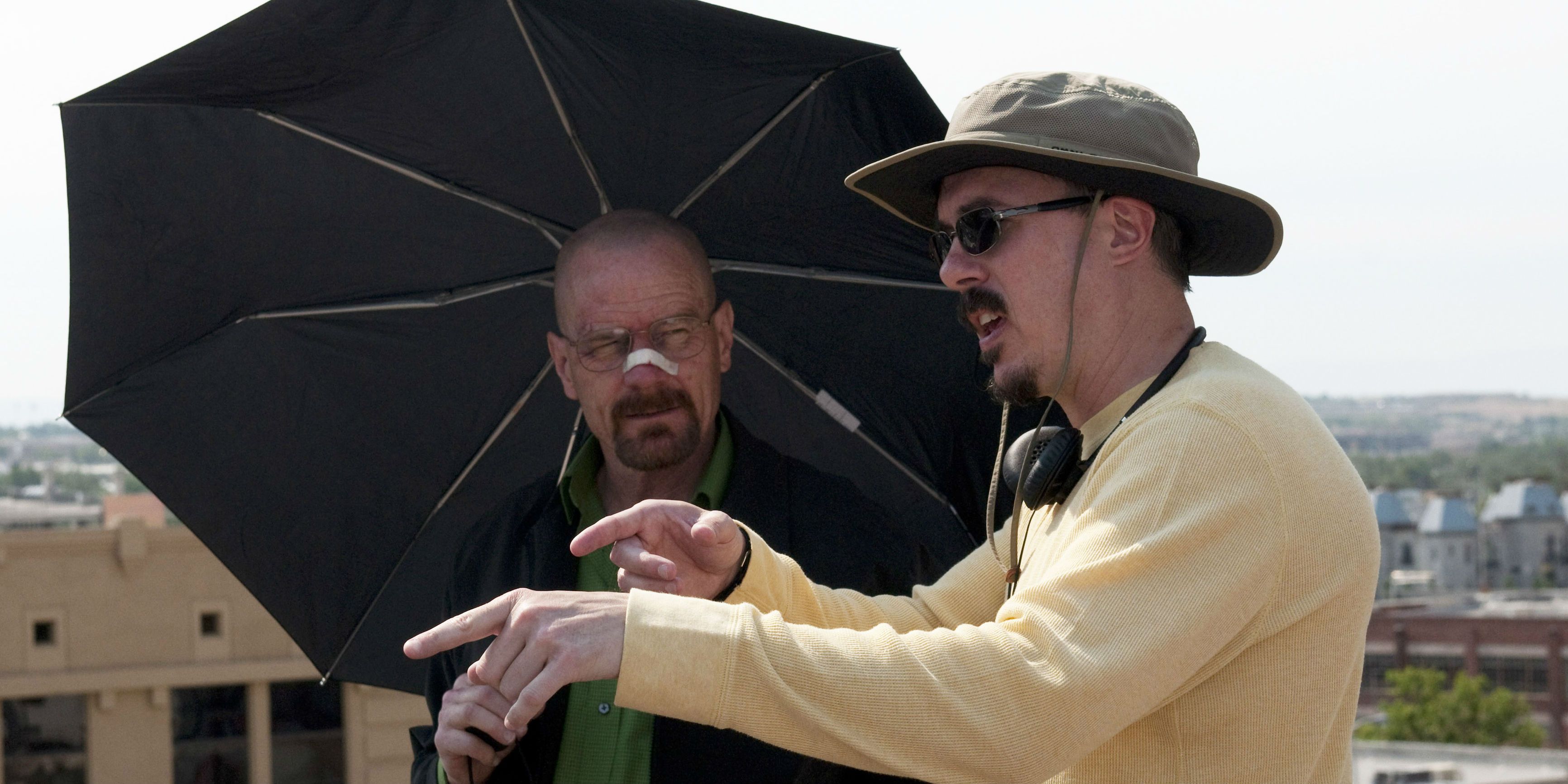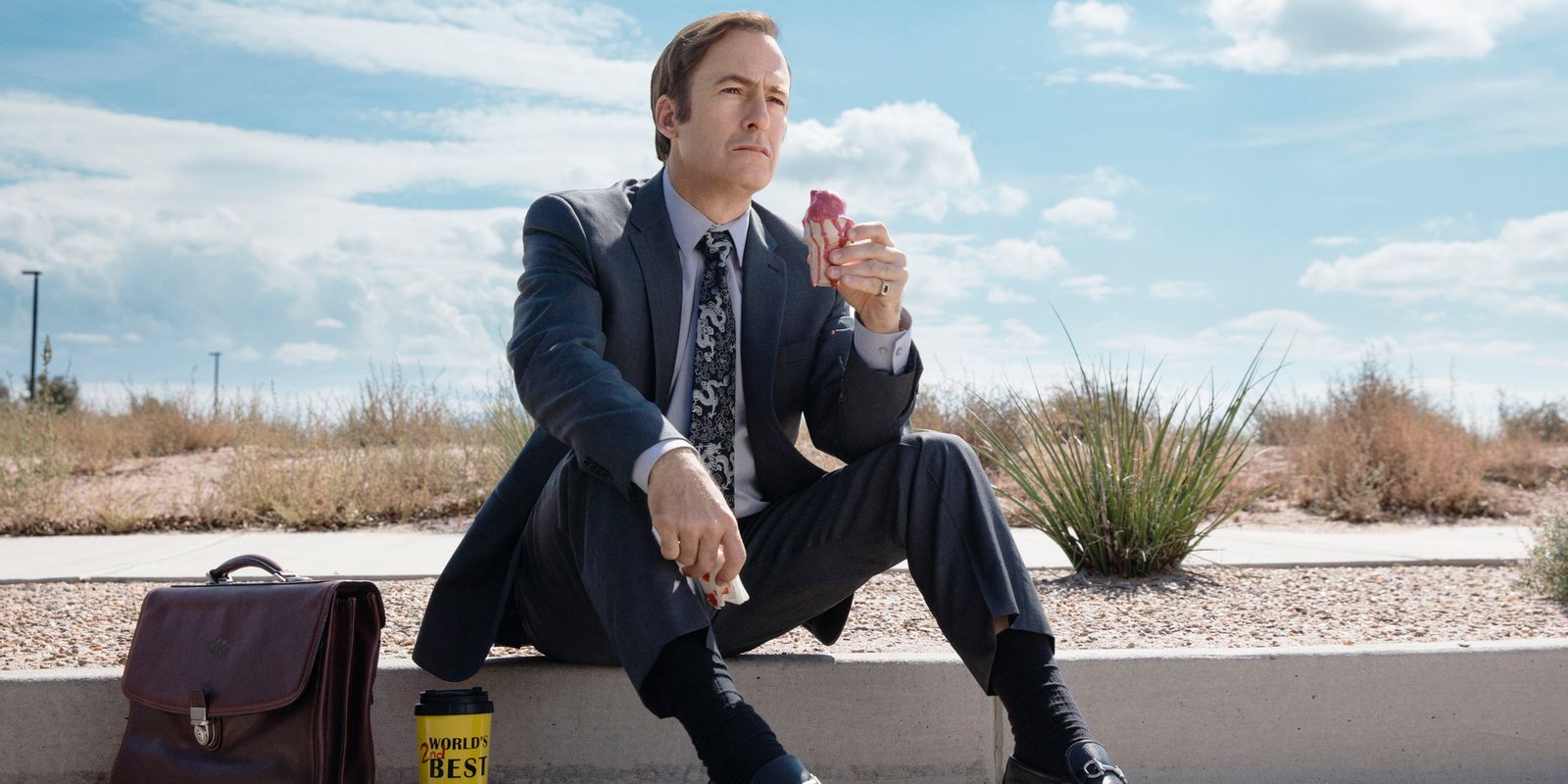Few people have had such a profound impact on television as Vince Gilligan. The mastermind behind Breaking Bad, its prequel Better Call Saul, and a not-insubstantial role in shaping The X-Files, he was essential in shaping the current Peak TV landscape into the bounty of riches (and follies) it is now; few shows on TV today don't owe a debt to his work. And he's still redefining it with Saul, an Emmy-winning legal drama masking drug thriller that details the backstory of criminal lawyer Saul Goodman. What's made the show so lauded is its deft balance between telling a wholly involving story that could stand by itself while threading through heavy connections to the parent show. It's that rarest example of a prequel that unabashedly works, and that all lies in the careful writing.
So, of course, when Screen Rant got the chance to chat with Gilligan for Better Call Saul's Season 3 home video release, we had to get to the bottom of his process and how some of those most delightful Breaking Bad connections came about.
Related: Better Call Saul Has Become Breaking Bad (And That’s Okay)
Screen Rant: One of my favorite parts of Better Call Saul is the framing device at the start of each season - the black and white vignettes - and I wanted to ask about how you decide what's going to be in each of these because you only have one of these per season? And could we ever see more of them? Will there ever be a full episode of them or more of them featured than just once a year?
Vince Gilligan: All good questions and those are all questions we've asked ourselves time and time again. The first question we asked ourselves at the beginning of each season is should we do another one of these things? Should we be that consistent? Consistency can be great, but consistency applied once or twice too often can become perhaps redundant - possibly even boring. So we would ask ourselves at the beginning of each season, can we keep telling Gene's story and ultimately, therefore, Jimmy McGill and Saul Goodman's story through the use of these black and white flashforwards? And each season we soul search and we say to ourselves, "is this the year we should do something different?" and every year thus far - certainly the first three seasons, not to give away whether it comes back for Season 4 - but certainly in the first three that consistency was creatively engaging to us. We really think there's an interesting story for us going on in Omaha, Nebraska, going on in the - this is where it gets really complicated - going on in the present, which is to say - is this the future or is it the present? - it's certainly the future in regards to the events of Better Call Saul but it's kinda of the present when you get to the end of Breaking Bad. However you slice it, however you delineate the chronology, there's a fascinating story there post-Breaking Bad and I think - I don't want to give anything away and I can't make any hard-fast promises, because even we don't know where we're going most days - but I think it's not unlikely we're going to see more story set in Omaha, Nebraska. Certainly perhaps at the beginning of seasons and maybe even beyond that. It seems there's a lot of story there, it'd be a shame not to get to it.
SR: Another writing question. Prequels are obviously very hard to do because it's so easy to bend the timeline or rules of the world and with Better Call Saul you're dealing a separate story that also glances with so much that feeds into Breaking Bad. How do you avoid breaking the timeline or anything like that? Do you have certain axioms set up - obviously Jimmy can't work with Gus in the past - or do you write the characters' arcs and the story you want to tell, and then deal with any continuity errors after you've got that tell nailed down?
VG: That's a great question. No, we definitely don't write the story we want to tell and fix it later [laughs] we suffer the pain right at the get-go. It's a great question and the best answer to it is we... - and you're right, prequels are really damned hard to write. I thought they were going to be easy. I thought - Peter Gould and I - ah hell, it's a prequel, we know where it'll all winds up, this will be easy. There's so much we don't have to make up. And we were just deluding ourselves. Prequels are actually harder because the sky is not the limit. You can't do anything and everything with the storytelling because there's so much set in stone later and you have to reverse engineer and you have to steer the supertanker very carefully otherwise it goes smashing into the dock and messing everything up - I don't know if that's the right metaphor. But we, the answer to your question on how we navigate it is we're tough on ourselves. Man, it'd fun as hell if Saul Goodman could hang out with Gus Fring - I'd love to see those two worlds collide. But I don't know how the heck we could do it because it's kinda written in stone that that never happens in Breaking Bad so we just have to - what's the old Faulkner expression - we had to kill our darlings. If we had a moment, if we had a scene someone pitched in the writer's room, "Hey wouldn't it be great if Jimmy and Gus are hanging out." - we can't do that, try as we might, as much as we might want to do that, we have to be self-disciplined, that's really what it comes down to a lot of the time - self-discipline. We have to discard any ideas like that because they just fit into the logic and the timeline of the story as we understand it from Breaking Bad.
SR: Speaking of, you say things are set in stone. Is there anything now, having done three seasons of Saul and five of Breaking Bad, that you wish you'd done differently early in the days of Breaking Bad in relation to Better Call Saul - anything that you're like, "Oh, if we'd just had a different line here, changed one little thing, it could have opened a storytelling opportunity?" Is there ever anything that you've felt, "Oh, I wish I'd done that differently?"
VG: You know that's a great question. I know there's some that have come up in the room. I'm drawing a blank - I'm not being coy I'm trying to think of a good example for you. I know that exact thing has come up in the room and said, "Ah man, why didn't we just do that in the show?" I'm drawing a blank. I mean the one that you kinda steered me toward ago with your last question, it would have been cool if Jimmy McGill knew Gus Fring. We got pretty close actually. Having said that, we skirted very dangerously close to the edge and felt very proud of ourselves for doing so. We had Jimmy McGill in Season 3 - as you fans of the show know - we have had him go to the chicken restaurant, Los Pollos Hermanos, and interact with Gustavo Fring, and that was delicious. That was a lot of fun for us to write. It was fun for me personally to direct. But you know that's as close I think - I don't see how it can get much closer than that for Jimmy McGill. He was oblivious to the fact he was staring at, conversing with one of the world's most dangerous, brilliant drug kingpins. As far as I could tell, he's never going to fully realize who that was. Except I guess in the post-Breaking Bad world he now knows. So those kind of moments, every now and then... I'm trying to think of a good example for you... but every now and then you'd find yourself saying "God, if only we hadn't..."
I’ll tell you a tricky one. Off the top of my head, there was some casual reference Saul Goodman made way back in Breaking Bad about being married twice or three times or something like that. That one has bedeviled us for sure. It was just a goofy throwaway line in an episode of Breaking Bad where Saul Goodman talked about his second wife or some such and that has bedeviled us. We’re trying to figure that one out. When did he a wife? And who was the second wife? Who was his first wife? Blah blah blah. That was a tricky one.
SR: Good luck with that one.
VG: Yeah, right. We'll need it.
SR: One of the cool connected things is all your slight cameos. There's obviously no Walter White, no Jesse, but you have so many obscure characters from Breaking Bad turn up - the realtor, the waitress - and that's really cool. I went through all of them when Season 3 aired and it was just amazing - there are dozens of them. How do you decide which minor characters you're going to bring back and how do you go about actually doing that? How does that process work?
VG: It's just so much fun. For instance, if we need a realtor character on Better Call Saul, we say to ourselves, we had a bunch of realtors over the years. We had at least - gosh we had at least in terms of that and using that as a specific example, just off the top of my head I can remember three real estate agents, actually, I can remember four that we had on Breaking Bad. Then the question is, you ask yourself, which one would you want to see come back? And then we truly have an embarrassment of riches when it comes to these wonderful actors and actresses because all four of those real estate agents I would have been more than happy to see return to the show, so then you just kind of pick one. And sometimes, maybe there's the added situation of who's available, and so on and so forth, but we had a real embarrassment of riches on Breaking Bad because of our wonderful casting people. They found just the best folks that we just... Los Angeles based casting and our New Mexico based casting, and both those groups of ladies found us just the most wonderful actors and I really can't think of any of them we didn't enjoy working with and wouldn't be happy to have back, and so say you ever want a realtor, let's not invent a new one, let's...
Albuquerque in real life, it's not a small town, but it's a medium-sized city in which if you live there it's very believable that you'd run into certain people time and time again - it's not hard to believe. It'd be less believable in Manhattan - the tri-state New York area, but it's actually pretty believable in a mid-size city like Albuquerque, and just seems like a fun thing. There's no sort of masterplan to it, we just sort of catch as catch can and take it episode by episode, but it's always fun to bring these folks back.
SR: And there's one final thing I have to ask about in regards to cameos is that there were theories online that at the start of episode three there was Hank's voice over the radio when DEA are busting Hector's shop. Is that Dean Norris in the show?
[laughs] No, that's actually not. I knew people were going to assume it was him. I knew it. I said it in the editing room, I said the voice actor we've got to do this, people are going to think it's Dean Norris, it's Hank Schrader. No, that voice actor was not. I had a feeling that was going to happen.
SR: Well, it finally happened.
And I voiced that thought. It wasn't a concern, I just thought that sounds an awful lot like Hank. But then we figured, what can it hurt? But actually, it's not - it's not story-wise and reality-wise that was a whole other actor.
Next: Better Call Saul’s Shocking Season Finale Death Changes Everything
Better Call Saul is available on DVD and Blu-Ray now. Season 4 is shooting now and will air later in 2018.



